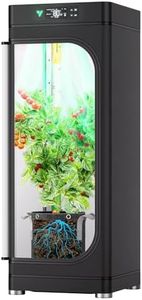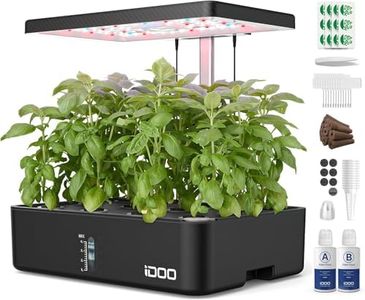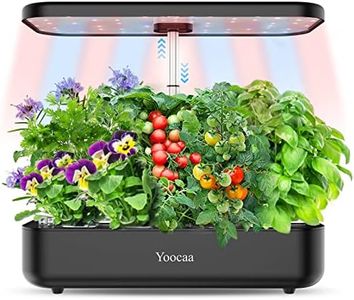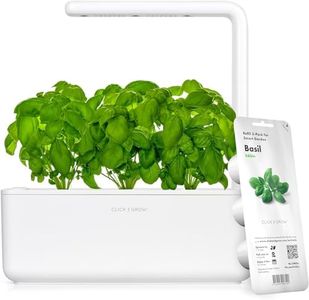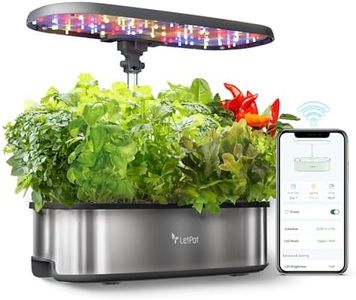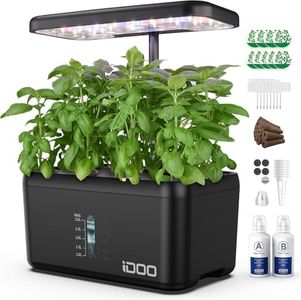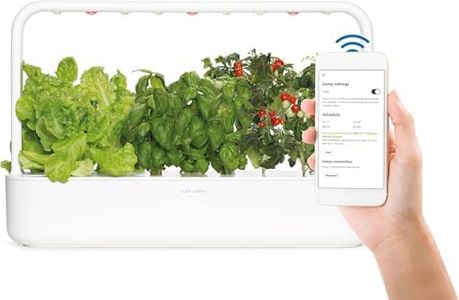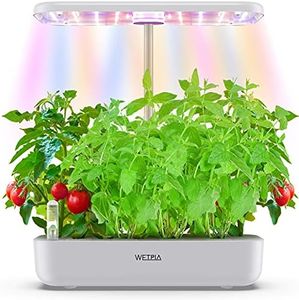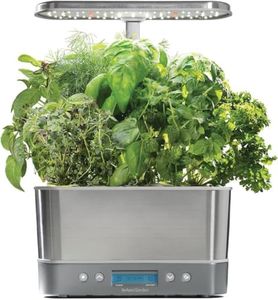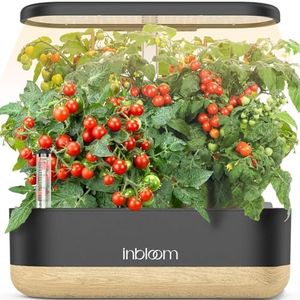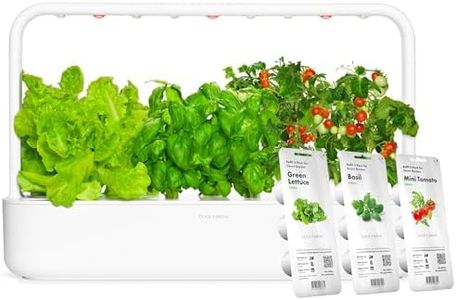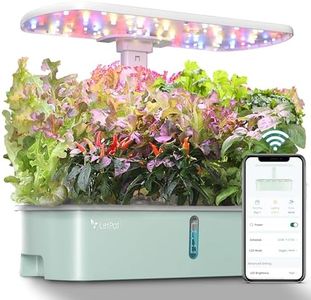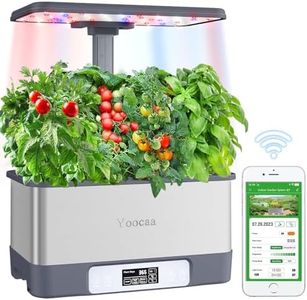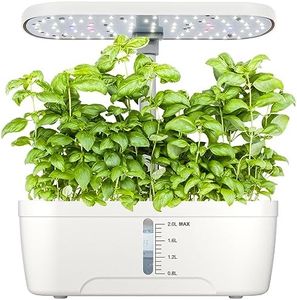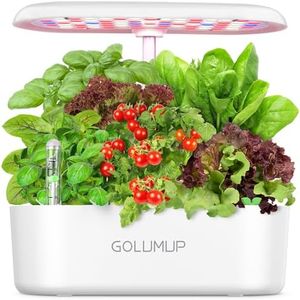We Use CookiesWe use cookies to enhance the security, performance,
functionality and for analytical and promotional activities. By continuing to browse this site you
are agreeing to our privacy policy
10 Best Indoor Hydroponic System
From leading brands and best sellers available on the web.Buying Guide for the Best Indoor Hydroponic System
Choosing the right indoor hydroponic system can be a rewarding experience, allowing you to grow plants efficiently without soil. The key to selecting the best system for you is understanding your space, the types of plants you want to grow, and your level of commitment to maintaining the system. Hydroponic systems can vary greatly in complexity and size, so it's important to consider your personal needs and constraints before making a decision.System TypeThe type of hydroponic system is crucial as it determines how your plants will receive nutrients and water. Common types include Deep Water Culture (DWC), Nutrient Film Technique (NFT), Ebb and Flow, and Aeroponics. DWC is simple and great for beginners, while NFT is efficient for leafy greens. Ebb and Flow is versatile, and Aeroponics offers high oxygen levels for roots. Choose a system based on your experience level and the types of plants you wish to grow.
Size and CapacityThe size and capacity of the hydroponic system dictate how many plants you can grow and where you can place the system. Small systems are ideal for beginners or those with limited space, while larger systems can accommodate more plants and are suitable for serious gardeners. Consider the space you have available and how many plants you want to grow when selecting the size of your system.
LightingLighting is essential for plant growth in an indoor hydroponic system, as it replaces natural sunlight. LED lights are popular due to their energy efficiency and full-spectrum light, which is beneficial for plant growth. Fluorescent lights are another option for smaller systems. The choice of lighting should be based on the type of plants you are growing and the growth stage they are in, as different plants and stages require different light intensities and spectrums.
Nutrient SolutionThe nutrient solution is what feeds your plants, providing them with essential minerals and nutrients. It's important to choose a solution that is appropriate for the types of plants you are growing. Some systems come with pre-mixed solutions, which are convenient for beginners, while more experienced growers might prefer to mix their own to tailor the nutrients to specific plant needs. Consider your level of expertise and the specific requirements of your plants when selecting a nutrient solution.
Maintenance RequirementsMaintenance requirements can vary significantly between different hydroponic systems. Some systems require regular monitoring and adjustments, while others are more automated and require less frequent attention. If you have limited time to dedicate to your garden, look for systems that are low-maintenance. However, if you enjoy the process and have the time, a more hands-on system might be more rewarding. Consider how much time and effort you are willing to invest in maintaining your system.
Water UsageWater usage is an important consideration, especially if you are concerned about sustainability. Hydroponic systems generally use less water than traditional soil gardening, but the amount can vary between systems. Systems like DWC and NFT are known for their efficient water use. If water conservation is a priority for you, consider systems that are designed to minimize water waste. Evaluate your environmental priorities and choose a system that aligns with them.
